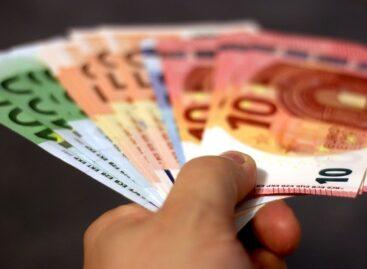Mastercard: Contactless payment is catching up all over Europe
The Covid-19 pandemic that has locked down the planet and battered the payments industry is a classic Black Swan. It has taken several hundred thousand lives, plunged the world into a depression, and tarnished the EU’s reputation.
Invariably EU policymakers’ solution to crises is ‘more Europe’, meaning more control and direction from Brussels and Frankfurt. Covid-19 will fuel EU dirigisme and protectionism in payments.
The EU’s intervened repeatedly in payments. Self-congratulatory impact assessments and calls for further intervention followed.
The EC’s Study on the application of the Interchange Fee Regulation by Ernst & Young and Copenhagen Economics is illustrative. It delivered the foregone conclusion, that the EC’s 2015 interchange price controls benefited consumers and merchants.
Cutting annual interchange by EUR 2.68 billion reduced acquirers’ costs, 45% of which by 2017 were passed on to merchants. Acquirers reaped a windfall by initially not passing it on to SMEs. Similarly, merchants held onto savings from lower payment-acceptance costs as long as possible. However, over time competition forces acquirers and merchants to give it up.
On the other side of the two-sided retail-payments market, E&Y and Copenhagen Economics concluded ‘there is no systematic evidence that issuers reacted to the decline in interchange fee payments by increasing real consumer banking fees or by making changes in issuing cards’. That’s what the EC wanted to hear. However, it’s counterintuitive and contrary to empirical evidence in Europe, the US, and Australia.
Accenture (First Annapolis) surveyed changes EU issuers made from 2015 through 2017. 70% of 275 card product changes made by 78 issuers tracked were unfavorable in terms of increased fees and/or reduced rewards.
US debit-interchange price controls were implemented in 2011. In response to lost revenue, banks reduced free checking. Bankrate.com’s 2009 survey reported 76% of banks offered free checking. By 2015 only 37% of banks surveyed offered free checking with no conditions.
In 2003 the Reserve Bank of Australia slashed credit-card interchange by roughly 50%. CRA International concluded ‘consumers were harmed by higher cardholder fees and less valuable reward programs’. Australian cardholders’ annual fees increased AUD 480 million, and the value of reward points decreased 23%, primarily in 2003 and 2004.
In all markets interchange price caps suppress issuer innovation.
The EC’s study reported network fees increased EUR 550 million per year. That sets up its next target.
PSD2 forced banks to allocate capital to provide payments and harvesting of payment-transaction data for free, and prescribed Brussels central planners’ risk-management preferences over those dynamically set by the players at risk. PSD3 is inevitable.
Market prices set by the continuous interplay of hundreds of millions of consumers, millions of merchants, thousands of banks, payment processors and networks, not central planners, no matter how enlightened and well-intentioned, are the best way of dynamically allocating resources to where they’re most highly valued across the payments ecosystem, and maximising holistic payment-system value.
In a world scrambling for masks, ventilators and pharmaceuticals, the EU’s view payments infrastructure is strategic resonates. Regulators favoring EU payment champions is coming to the fore.
Brussels and Frankfurt pine for a European pan-EU retail-payment system. Just as the EC dislikes dominant American technology titans Microsoft, Google, Facebook, and Amazon, it’s hostile to the two leading pan-European retail-payment networks Mastercard and Visa.
Regulators cheered the Euro Alliance of Payment Schemes, a coalition of national payment systems that hoped to establish a pan-Western-European payment system by establishing member-system interoperability. Not solving a problem for banks, consumers or merchants, it failed.
The EC and ECB rooted for 24 Western European banks’ proposed payment scheme Monnet. Banks ultimately scrapped the project, deciding it wasn’t worth investing billions of euros in a primarily political rather than economic project.
Related news
Revolut does not change card transfers
Revolut has decided not to introduce a planned base fee…
Read more >It was revealed how much Tesco’s first person earns
The CEO of Tesco, Ken Murphy, will receive a record…
Read more >Every third Hungarian cardholder regularly pays with their mobile
Mastercard published the results of its research entitled “Bank Card…
Read more >Related news
BMI: Slower expansion in April
The seasonally adjusted April value of the Purchasing Manager Index…
Read more >7-Eleven teams up with Meituan to trial drone delivery
Global convenience store chain 7-Eleven announced that it has partnered…
Read more >PepsiCo sells interest in Serbian soft-drinks group Knjaz Miloš
Czech soft-drinks supplier Mattoni 1873 has acquired full control of…
Read more >







